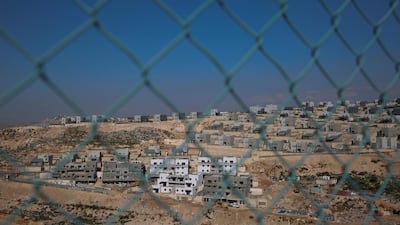Amnesty International has denounced online booking giants for their role in fuelling human rights abuses in illegal Israeli settlements in Palestine, accusing them of profiting from "war crimes".
In their latest report – named Destination: Occupation – the rights group looks at hundreds of rooms and activities listed on sites including Airbnb, Booking.com, Expedia and TripAdvisor.
Amnesty accuses the four booking companies of being in violation of the UN Guiding Principles on Business and Human Rights, which seeks to provide a global standards for preventing human rights abuses linked to business activity.
The companies claim to operate under high ethical values and respect for the rule of law. Yet none of them have ended the listings in settlements considered to be illegal under international law.
In doing business with settlements all four companies are contributing to, and profiting from, the maintenance, development and expansion of illegal settlements, which amount to war crimes under international criminal law, the rights group said. The companies, says the report, are normalising and legitimising to the public what is in fact recognised as an illegal situation.
"War crimes are not a tourist attraction," said Seema Joshi, Amnesty's International Director of Global Thematic Issues.
Tourism is Israel's major sources of income. Founded on historical and religious sites, the country in 2018 saw more than four million visitors – up from 3.6 million in 2017. Mass tourism has brought huge financial benefits to Israel and to the businesses operating in occupied territory.
There are an estimated 3 million Palestinians living in the West Bank, in addition to some 400,000 Israelis. Around 150,000 more live in occupied East Jerusalem.
Despite being illegal under international law, Israeli settlements have continued to expand, violently displacing and restricting the freedom of movement of Palestinians.
In Khirbet Susya, the southernmost settlement visited by Amnesty, a resident lamented the forceful displacement of her community. "At night a bulldozer could destroy everything. Children here live in fear," Fatima Nawaja said.
Also from Susya, Azam Nawaja, a middle-aged man with a thick moustache said: “The occupiers forced us to leave our land as they wanted to make money from tourists. They could have given it to us to manage it. We wouldn’t have destroyed it, but the occupiers would never let us profit from our own land.”
A TripAdvisor review of Susya settlement reads: "Every visitor to the land of Israel should definitely come visit this site. It can give you a better perspective of Israel. Fun place!”
In October last year the hamlet of Khan Al Ahmar, also visited by Amnesty, came under threat of demolition. For months the village's 180 residents – half of whom are children – lived in fear of their homes being razed to the ground. Between 2017 and 2018 more than 660 people were evicted in the West Bank, including East Jerusalem.
In a visit to the settlement of Netiv Ha’avot on Monday, Israel's Prime Minister Benjamin Netanyahu reiterated his government's support for settlements. “There won’t be any more uprooting or halting settlements – just the opposite: The Land of Israel is ours, and will remain ours,” Mr Netanyahu declared. As part of its policy to sustain and expand settlements Israel has provided a range of financial incentives to businesses that operate in settlements, says Amnesty.
Last year, in light of the 50th anniversary of Israel's occupation of Palestinian territory, Amnesty began campaigning for third states to prevent companies from operating in settlements and trading in settlement goods. As part of the campaign, says Amnesty, the rights group is now focusing on the digital tourism industry.
But concern over the role of the tourism industry in promoting settlement expansion is not new. In 2013, an independent fact-finding mission mandated by the UN set off to investigate the human rights implications of Israeli settlements and how businesses were sustaining them. This in turn sparked Amnesty's research project.
"Despite the fact that these are illegally appropriated Palestinian natural resources, these activities only benefit settlers and the online companies that do business with them," said Amnesty's Ms Joshi.
Ahead of the Amnesty report, pro-Israeli organisation NGO Monitor on Tuesday accused the rights group of running an anti-Semitic campaign against Jewish tourism. In a scathing critique, the organisation said Amnesty's report was attempting to deny Jewish connection to the Holy sites, erasing Christian Holy sites in Jerusalem and using ideology rather than methodology.
But Amnesty has been documenting the negative effects of Israeli settlements for years. Between February and October 2018, on at least two occasions, the group's researchers visited five settlements in the West Bank. The locations were chosen because of their touristic importance to neighbouring settlements.
"These companies have themselves a responsibility to respect international humanitarian law and international human rights law. Countries in turn have a responsibility to ensure that respect," Saleh Hijazi, Amnesty's Deputy Regional Director for the Middle East and North Africa, told The National.
"We call on the US government to take regulatory action to prevent US-based companies...from providing or facilitating the provision of tourism services in illegal Israeli settlements or by settlers in the Occupied Palestinian Territories."
And yet settlement plans have since proliferated and companies have continued to benefit from them. Despite that, even the most basic of inquiries would reveal the fact that settlements are considered by the majority of the international community to be illegal under international law.

